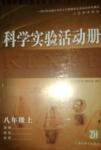题目内容
【题目】 Given the size of the country, the climate in Australia varies greatly from one zone to the next. Generally speaking, there are four seasons across most of the country while the Top End (including Darwin, Katherine, Kakadu and Arnhem Land), Broome, the Kimberley and Tropical North Queensland experience a ‘wet season’ ( November to April) and a ‘dry season’ (May to October).
It’s also important to remember that Australia’s seasons are at opposite times to those in the Northern Hemisphere (半球). So if you’re looking for an endless summer, just head Down Under as things start to cool off in the Northern Hemisphere.
Summer in Australia falls between December and February and is famous for sunny days with high temperatures. It’s the wet season in the tropical north (November to April), which is characterised by monsoonal (季风) rains. Many tourism operations are closed for the season, so are some national parks (such as Kakadu) due to flood risks. The same period is also the official hurricane season for areas around Cairns, although storms can also occur outside of this period.
For the ideal Australian summer, head to the southern parts of the country where you’ll find hot, sunny days to enjoy the unbelievable experiences on offer. The great weather encourages a steady flock of visitors to the country’s beautiful beaches to swim, surf or just relax. Celebrate the new year like a true Australian—with a beach barbecue—or visit Sydney for their internationally famous New Year’s Eve fireworks display. It’s a popular time for travel in Australia, both for local families and international visitors. Check the school holiday calendar for more information on break periods, and remember to book your accommodation in advance to avoid disappointment.
【1】Which month is considered as a dry season in Broome?
A.April.B.September.
C.November.D.December.
【2】What does the underlined part “Down Under” in Paragraph 2 refer to?
A.A club.B.An airport.
C.Australia.D.The Northern Hemisphere.
【3】What is the main characteristic in the northern Australia in summer?
A.Bad weather.B.The beach barbecue.
C.Fireworks.D.Beautiful beaches.
【答案】
【1】B
【2】C
【3】A
【解析】
这是一篇说明文。主要说明了澳大利亚不同地区的气候差异很大,一般来说,大部分地区有四个季节。澳大利亚北部夏季高温,而澳大利亚南部夏季气候适宜,宜人的天气吸引了大批游客前往该国美丽的海滩游泳、冲浪或放松身心。
【1】细节理解题。根据第一段中Broome, the Kimberley and Tropical North Queensland experience a ‘wet season’ ( November to April) and a ‘dry season’ (May to October).(布鲁姆、金伯利和地处热带的北昆士兰经历了一个“雨季”(11月至4月)和一个“旱季”(5月至10月)。)以及分析选项可知在布鲁姆的旱季是9月份。故选B。
【2】词义猜测题。结合上文It’s also important to remember that Australia’s seasons are at opposite times to those in the Northern Hemisphere. So if you’re looking for an endless summer可知澳大利亚的季节与北半球的季节是相反的。所以如果你想要一个漫长的夏天,那就去澳大利亚。可知划线短语指代“澳大利亚”,故选C。
【3】细节理解题。根据第三段中Summer in Australia falls between December and February and is famous for sunny days with high temperatures. It’s the wet season in the tropical north (November to April), which is characterised by monsoonal rains.(澳大利亚的夏天在12月到2月之间,以阳光灿烂的高温天气而闻名。这是热带北部的雨季(11月到4月),其特点是季风性降雨。)可知夏天澳大利亚北部的主要特点是恶劣的天气。故选A。
词义猜测题是高考阅读理解中常考题型之一,可以大致分为
① 定义猜词,可以根据定义信息和举例猜测词义。如文中常用refer to,be called或that’s to say,such as等。
② 逻辑猜词可以根据同义词、反义词、因果关系词等猜测词义,例如,similarly,the same as,but,however,while,on the other hand,since ,because等,所猜词与这些提示词前/后面部分的含义一样、相反或是前因后果。
③ 语法猜词,可以根据构词法,再结合上下文进行猜词。
④ 语境猜词,猜测词义离不开上下文的语境,通过上下文提供的情景和线索进行合理的分析,同时还要关注其所在的整段及整篇文章。
⑤ 指代猜词即找出人称代词、指示代词、关系代词或关系副词等所指代的内容,做题时要注意指代词的位置,以便于判断,然后用所找的指代内容替换划线代词,核实其逻辑、意义、位置等是否一致,最后比较所找部分与选项,确定意思最接近的选项。
如第二小题,结合上文It’s also important to remember that Australia’s seasons are at opposite times to those in the Northern Hemisphere. So if you’re looking for an endless summer可知澳大利亚的季节与北半球的季节是相反的。所以如果你想要一个漫长的夏天,那就去澳大利亚。可知划线短语指代“澳大利亚”,故选C。

 科学实验活动册系列答案
科学实验活动册系列答案